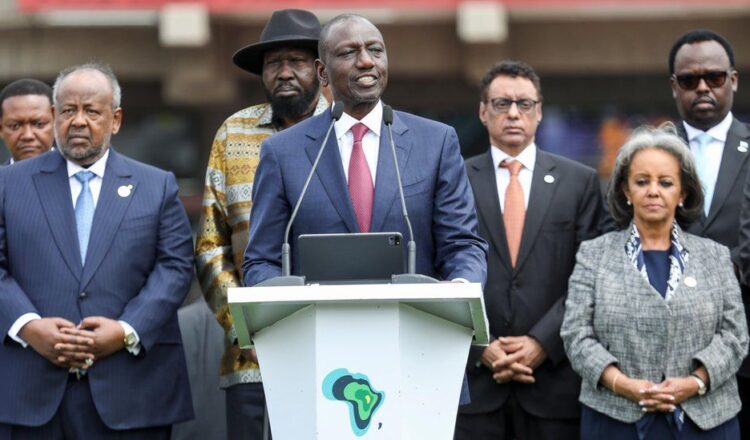The Africa Climate Summit reached its conclusion on Wednesday, culminating in the adoption of the Nairobi Declaration, a groundbreaking resolution aimed at addressing climate change through the implementation of global carbon taxes.
Hosted by Kenya’s President William Ruto in Nairobi, the three-day summit sought to focus on strategies to fund Africa’s environmental priorities while presenting the continent as a central destination for climate investment, challenging the perception of Africa as merely a victim of climate-related challenges.
The Nairobi Declaration, a pivotal outcome of the summit, calls for major polluters to increase their contributions to support developing countries in their climate adaptation efforts. African leaders firmly asserted that the plan outlined in the declaration would form the basis for their negotiations at the upcoming global COP28 conference in November.
President Ruto proposed the introduction of carbon taxes as a financial safeguard against the adverse impacts of climate change, which often strain government budgets. He emphasized the broader economic potential of green growth, asserting that it offers multi-billion-dollar opportunities for Africa and the world to harness.
Throughout the African Climate Summit, discussions predominantly revolved around mobilizing funds for climate adaptation, resource conservation, and the development of renewable energy sources. Research has indicated that Africa, despite being one of the regions most vulnerable to climate change effects, receives only 12% of the nearly $300 billion required annually for its survival.
The Nairobi Declaration urged world leaders to support the proposal for a global carbon taxation regime, encompassing carbon taxes on fossil fuel trade, maritime transport, and aviation. This approach could be augmented by a global financial transaction tax. Human rights activist Graça Machel hailed the declaration as “a huge step forward,” emphasizing Africa’s role as a contributor to global solutions and opportunities.
The declaration envisions that such actions will secure substantial financing for climate-related initiatives while insulating discussions on tax increases from external and internal political pressures.
Although the call for a global carbon tax is a significant step, some activists argue that carbon credits, which enable polluters to offset emissions by funding green projects, serve as a pretext for major polluters to continue emitting carbon dioxide. President Ruto announced that international governments, development banks, private investors, and philanthropists pledged a total of $23 billion to green initiatives during the summit, including substantial commitments to a major carbon market initiative.
However, critics argued that the summit did not dedicate sufficient time to assist African countries in adapting to extreme weather conditions. Protesters outside the summit venue also voiced concerns over the plan to sell the continent’s carbon credits to foreign nations.
The Africa Climate Summit received financial support from various international businesses and nations, including a substantial contribution of $450 million from the United Arab Emirates via the Africa Carbon Markets Initiative (ACMI) for carbon credit purchases, amounting to hundreds of millions.




